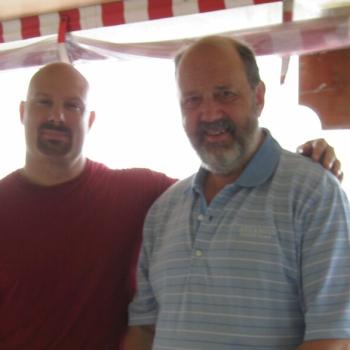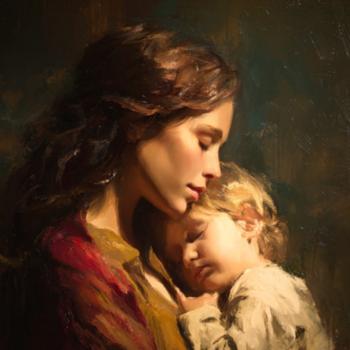Lectionary Reflections
Easter Day
John 20:1-18 and Psalm 118:1-2, 14-24
The youth in the group I was chaperoning all knew how to ski already. They were already at the top. I waited at the bottom on the beginner slope to take a group lesson before ascending. As we waited for the instructor to arrive, I looked up at the mountain on which I would soon be standing, wreathed in clouds and sky of blue. The lesson taught me to stand upright while moving my feet in the heavy skis. Unfortunately, we ran out of time and didn't get to practice how to get off the ski lift. The instructor told us, but I learn better by practicing new skills. But, ready or not, when the time comes to get on the lift, you get on the lift.
The whole ride up the mountain I kept rehearsing the instructor's instructions—but wait, did the poles go down first, or the skis? I anxiously scanned the instructions on the side panel of the lift booth. "Good morning!" a cheery young man sharing my lift booth broke into my thoughts. He had really white teeth. He told me he was a youth pastor here with a group. I told him I was an associate pastor at church a few hours away and we talked a little shop. It distracted me a bit from my anxiety. We got closer to the top, and he said, "Well, it's been great talking to you. Remember, God loves you and have a super day!" I nodded nervously. The lift arm swung open. He exited gracefully and skied down the mountain. I fell flat on my face, skis sprawled—such an obstruction that two young attendants had to stop the lift and drag my body out of other people's way.
We all know that the forward momentum of our Lenten ski lift is supposed to bring us to the emotional mountain top of Easter: Resurrection Day, victory of life over death, the end of tears. We hear the bright lemon trumpet tones, see wreaths of flowers on the altar, admire the white draped cross. We know how we're supposed to feel today.
For some of us, Easter Sunday isn't so much a mountaintop we access with effortless grace. It's more like that piece of playground equipment we used to play on in grade school. The big round flat platform with the metal handles—lots of kids could get on and whirl around if one would push with his foot. Other kids would try to jump on as the wheel came around, but if you missed it this time, you had to wait until it came around again to get on.
I sing in the choir and we're up behind the preacher. It gives me a good view of people's faces in the congregation. On Easter Sunday I sit up there wondering if I'm the only person who is not quite ready to get off the ski lift? Not quite skilled enough in the art of leaving death behind and embracing life to feel as upbeat as I should today. In what follows, I'm making these names and situations up, so don't think I'm talking about you in what follows, please.
There sits Carl whose third marriage just ended after just two months. He has his eyes closed. There sits Robert in his wheelchair in the aisle. He used to be a farmer and the church's Mr. Fix-it, but, at age 80, has lost use of his legs. His face is set in lines of pain that is not just physical. There sits Anne, who has served as chairperson of just about every committee at one time or another. Competent, well off, well liked, her face carefully serene—but everybody struggles with something. There sits Ashley, home from her freshman year of college. She looks like she's lost weight she didn't have to lose in the first place. But perhaps I go too far. People's inward states are none of my business today.
If it's any comfort, nobody in John's account of Easter Sunday was ready for it either. They should have been. Jesus had dropped enough hints to get through to even the thickest of skulls. "Now my soul is troubled . . . it is for this reason that I have come to this hour" (12:27). "Let not your hearts be troubled, I go to prepare a place for you" (14:1, 2). "A little while and you will no longer see me, and again a little while and you will see me" (16:16).
How odd that in this account of the first Easter, none of the disciples seems fully ready for Easter joy. All four gospels concur that the Resurrection took them by surprise!
They should have put the turkey and the candied yams in the oven, dressed in their new dresses and suits, loaded basked with multi-colored Easter grass and chocolate eggs, all signed a Happy Easter card to Jesus with an inspiring poem by Helen Steiner Rice inside, and skipped arm in arm down the path to take it to him, smiles wreathing their faces.
Instead, the first Easter morning went like this.
Mary Magdalene woke up early, while it was still dark, pulled her cloak around her, and walked shivering to the tomb, through the Jerusalem market, past sleeping dogs and horses, by one of the gates of the ancient walled city, deserted at this hour, except for the soldiers on top of the wall. Outside the gate she is suddenly in countryside, except for a large stone quarry off to the left that looks like a huge gravel pit. From this quarry many slaves had provided stone blocks for building the city. To this quarry Mary goes with her grief.





